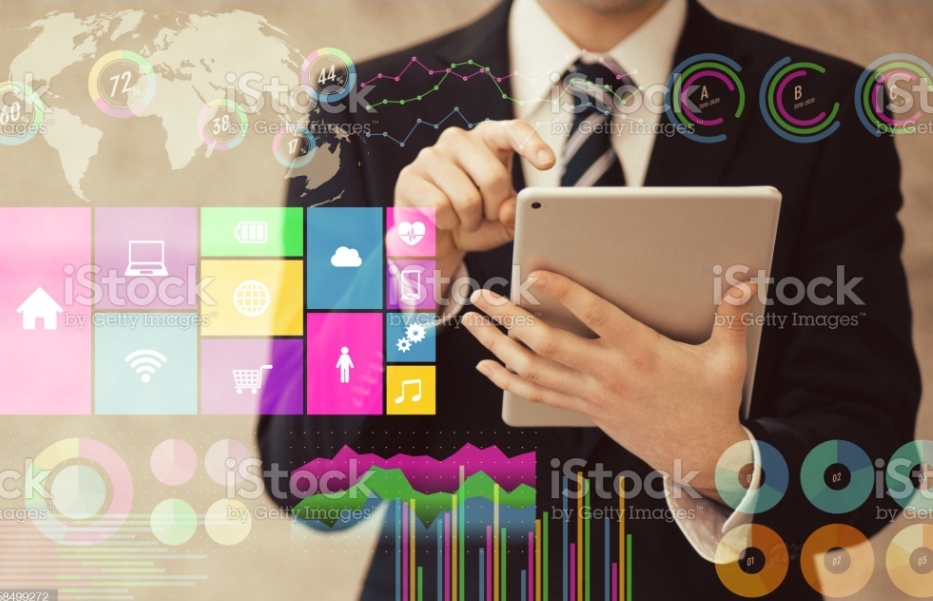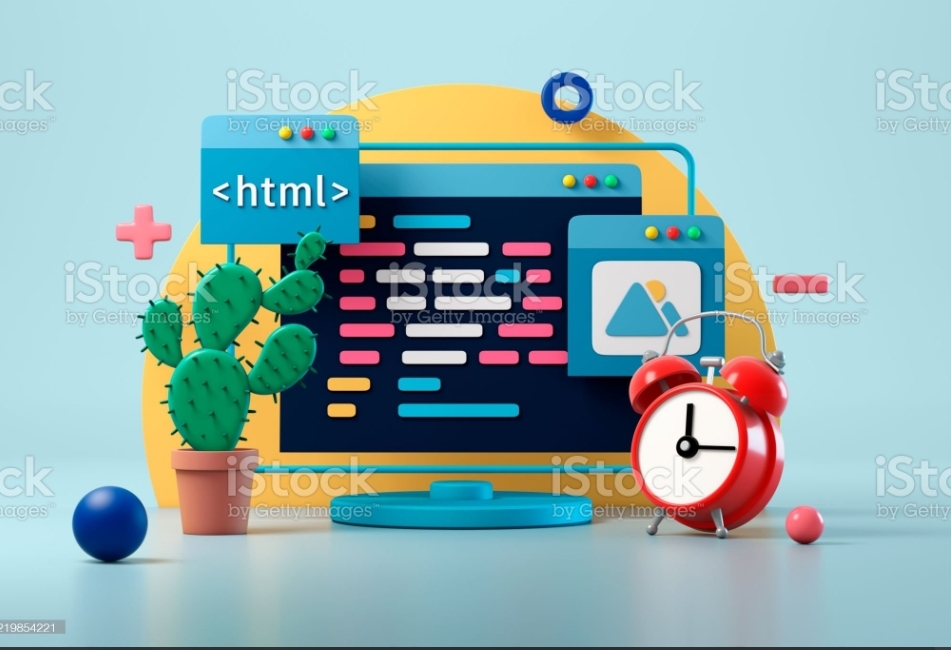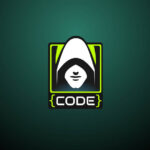What Is Tizen?
Tizen is a versatile operating system that was created from the ground up to meet the needs of all stakeholders in the mobile and connected device ecosystem, including device manufacturers, mobile operators, application developers, and independent software vendors. The support for HTML-5 is the best feature of this OS. Soon, we’ll go through the importance of HTML-5 support in more detail. Tizen also offers application development tools based on the jQuery and jQuery Mobile JavaScript libraries.
The Linux Foundation hosts Tizen, an open-source operating system based on Linux. To put it another way, Tizen is just another operating system for various devices. It’s the same as Android or iOS. It’s open to coders as well as anyone else who wants to help. You are free to use it to create and share system software and applications with the rest of the world.

All profiles in Tizen are built on top of Tizen Common, a common, shared infrastructure. This is an important characteristic because it allows for opportunities for progress. Tizen is an ideal platform for new product modification and adaptation.
Because Tizen is built on a foundation of common pieces and functions, it’s much easier to adapt the finished product to new technologies and further modify it.
Furthermore, Tizen OS enables you to sync many devices in real time to build a single ecosystem and enhance the user and developer experience.
Tizen could be a viable replacement for current popular operating systems. As a result, if you’re searching for something different, Tizen might be the way to go.
BRIEF HISTORY OF TIZEN
Nokia released a Debian GNU-Linux-based platform in 2005, which included the Maemo operating system and Software Development Kit (SDK). On February 15, 2010, Nokia and Intel Corporation announced the merger of the Maemo software platform and Intel’s Moblin “mobile Linux,” which was dubbed MeeGo. Nokia teamed with Microsoft to build a worldwide mobile ecosystem on February 11, 2011, almost a year later, and picked Windows Operating System (OS) to operate on Nokia smartphones. Intel has been without a significant mobile hardware partner since Nokia teamed with Microsoft, which is why the company abandoned MeeGo in favour of Tizen.
Samsung, on the other hand, stated on February 25, 2013 that its Bada operating system (bada means “ocean” in Korean) would be retired and incorporated into Tizen. Tizen is now hosted by the Linux Foundation, although its development will be totally open and led by a technical team comprised of Intel and Samsung.
For Which Devices Is Tizen Appropriate?
Tizen is a versatile operating system that works with a variety of devices. It will, however, only be available on Samsung electronics. That’s because it was developed and utilised primarily by Samsung. It eventually became open to the public and is now accessible to anyone.
Here’s a quick rundown of Tizen-compatible devices:
- Wearables
- Smartphones
- Smart Television
- Netbooks
- Infotainment systems in vehicles (devices that deliver navigation, entertainment, etc.)
Tizen OS may be installed on almost any electrical device. It isn’t confined to just one app, so you have more opportunities to reach out to your target demographic.
This operating system enables users to have an uniform user experience across all platforms, allowing them to conveniently access all content and enjoy their favourite TV series and movies whenever and wherever they choose.
What Sets Tizen Apart From Other Operating Systems?
Some argue that Tizen OS is inferior to Apple’s iOS and Google’s Android. It’s still evolving, and its capabilities will be expanded in the near future.
What distinguishes Tizen from other operating systems?
Features
- In truth, Tizen is similar to other popular operating systems. It has strong points and minor restrictions, just like Android OS, for example.
- In a nutshell, here are the primary features:
- Because it is open-source, it is possible to customise and customise the user interface.
- Developers have the freedom to make tweaks, adjustments, and try out new ideas.
- It’s built on HTML5, which means shorter development cycles and lower app development costs. Developers who know HTML may also create a user-friendly, interactive interface that increases UX.
- This OS and the applications built on top of it function nicely with Android.
- Both developers and users will find Tizen’s UI to be lightweight and simple to navigate.
- Because Tizen is a Samsung product, it works flawlessly with all Samsung devices.
- Tizen OS is versatile and flexible, working across a variety of devices (smart TVs, smart cameras, appliances, smartphones, and more). It allows individuals to link all of their devices and have a cohesive collection of tools that work together.
- The interface on smart TV may differ slightly from that on popular Android TV, but it functions in the same way in terms of bottom-bar menus, settings, and other aspects.
- Tizen offers tremendous scalability and performance.
Tizen is, in general, a new operating system. It has a lot in common with Android. It may differ from other operating systems in that it has little features that may appeal to some but irritate others. However, it is entirely dependent on one’s particular preferences.
HTML 5 compatibility:
Developers can utilise HTML5 and similar web technologies to create applications for the Tizen operating system. This is great news for content creators because the platform should allow for faster development cycles, better integration with the web, and lower app development costs. If your app is pulling content from your website, building it in HTML5 is a good method to ensure a quick and painless experience. A user can enjoy a better appearance and feel as well as faster access to web applications on their phones and tablets. This would allow for the creation of more hybrid mobile apps, which are mostly made up of HTML, JavaScript, and CSS.

Unlike mobile web apps, which save source files on a server, hybrid mobile apps store HTML, JavaScript, and CSS files locally, therefore there is no need for internet access to run a hybrid mobile app, and the user would not know the difference.
Samsung’s Tizen App Development:
The good news is that, like Bada, Tizen will enable native and web apps, and existing Bada apps will be moved over. Games like Cut the Rope and Gameloft’s Asphalt 7 are now available on the Tizen Store, giving you a taste of what you can anticipate when it launches. Samsung held a Tizen app challenge in 2013 to raise awareness of the platform, awarding $4 million to 64 winners who built both native Tizen apps and HTML5-based applications. Samsung has launched another contest in 2016, this time from August 18 to November 21, with a total prize pool of US$185,000 up for grabs.
The Tizen Operating System’s Future:
The first challenge for Tizen will be to replicate alternatives to all of the Google services that are built into the Android OS, and the second will be to develop the Tizen App Store, as mobile devices such as smartphones and tablets live or die based on the number of apps that are available to them. The Android App Store is the most popular, with a large number of app developers contributing.
Even though Tizen is more commonly used in cameras, smartwatches, and TVs, it seems evident to us that Samsung is testing it in the mobile industry. However, because the company has spent money to get the OS up and running and to improve cross-platform communication, we should expect to see more development in the future.
It’s possible that some people dislike the way Android works or its features. It’s possible that Tizen is a low-cost operating system designed for devices used in locations where Google doesn’t operate properly or isn’t allowed. The majority of end consumers merely want inexpensive cellphones that offer a large range of free apps. As a result of Samsung’s investment in Tizen and cross-platform use, we can anticipate a fierce battle between Tizen and Android, which will undoubtedly benefit end consumers like us.
Android Operating System vs. Tizen Operating System:
- Booting-
Tizen is a lightweight operating system that starts significantly faster than Android.
- Bar of notifications –
A slide down notification bar will be available on Tizen devices, just way it is on Samsung’s Touch Wiz UI.
- Scrolling is more fluid –
For web browsing, Tizen provides faster scrolling and rendering performance.
- Multi-touch and multi-tasking –
Multitasking and multi-touch gestures are supported in the same way that they are on Android smartphones.
- 3D (three-dimensional)–
Tizen will include 3D window effects as well as support for powerful 3D graphics in apps and games.
- Processors with a 64-bit architecture –
Version 3 of Tizen will support 64-bit CPUs, a feature that Google is working on for its upcoming Android upgrade.
IoT
IoT (Internet of Things) is a feature that you might not find in other operating systems. Not on such a huge scale, at least. What is the Internet of Things (IoT) in Tizen, and why is it so important? It’s about two crucial points:
- convergence of devices
To put it another way, all gadgets are linked. As a result, there are additional options for expanding control over various gadgets.
- Connectivity
Simply said, all of your Tizen-enabled devices form a unified system. You have complete freedom to connect them. That is the case with a “smart home,” which allows you to synchronise all of your devices to make your home a more comfortable place to live.
Tizen OS has a significant advantage over other operating systems when it comes to IoT. It synchronises across multiple appliances and devices with ease. This translates to a better user experience and increased living comfort.
Tizen Studio
Tizen Studio is a mobile operating system developed by Tizen
Tizen Studio is a platform for developing Tizen apps. Software developers can use it to create, build, debug, profile, and mimic Tizen native and web apps. It has a library with over 200 sample applications available online. These can assist you in better comprehending the framework and developing your own views.
To optimise your app and base your work on already tested solutions, you can use Tizen Studio for platform or app development. You can also create the product in your preferred setting.
Overall, there isn’t much of a difference between Tizen OS and other operating systems. Tizen is still in its early stages of development, so expect more in the future.
Is Tizen a Better Operating System Than Android or iOS?
Android and iOS are still regarded to be the most popular mobile operating systems. But there’s a reason Tizen is the most popular streaming platform on TVs.
Let’s look at the pros and cons of Tizen OS to see all the good and bad sides of the system.
Tizen’s Advantages:
- It’s a lightweight environment with a user-friendly UI that’s easy to move around in.
- It uses less battery and is well-optimized from a technological standpoint. Samsung gadgets, on average, use less energy.
- Intel is on board with it. This is significant since Intel supports Samsung, implying that Tizen OS will see a lot of development. Even if it’s currently limited, it’ll almost certainly evolve in the near future.
- Although the app catalogue is small, it does support all of the major streaming platforms.
- It allows for flawless casting from a smartphone.
- Tizen, which is based on the Internet of Things, covers all devices and offers a complete and advanced user experience that anyone can customise.
Tizen’s drawbacks:
- It may be tough for non-technical individuals to understand because it may necessitate a lot of modification. Furthermore, the documentation is lacking in several key details, therefore you’ll need to have the necessary knowledge and abilities to operate this OS. And it’s not always easy to find a community-based solution to a problem.
- There is no app store, which could limit access to consumers’ preferred material.
- Some users argue that it isn’t as sophisticated as Android when it comes to intelligent suggestions or recommendations.
Is Tizen Good for You?
When it comes to picking the right operating system for you, there is no such thing as a one-size-fits-all solution. Everything is dependent on a few key factors:
- The reason for which you wish to build a platform or an app
- Your financial situation
- What is your niche, and who do you want to target with your platform?
- Technical abilities and knowledge of you or your team
Which devices will it support?
It’s a good idea to weigh all of the advantages and disadvantages before deciding on an operating system for your streaming platform or application. Alternatively, if you have any uncertainties, seek the advice of specialists who will assist you in making the best decision possible. You might also employ the perfect individuals to build the platform from the ground up for you.
Conclusion
If you’re thinking about creating a Tizen OS-based streaming platform, it’s a good idea to assess your requirements first. It’s a solid system with a lot of benefits.
Nonetheless, Tizen will continue to expand its ecosystem as market demands and user wants grow, so expect more in the future. Your developers can also create another world marvel if they have the proper skills.
If you’re not sure what’s ideal for you, give us a call and we’ll assist you in finding the finest answer!




